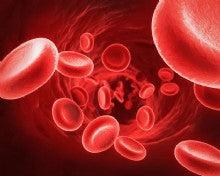There is a sneaky little culprit floating around in your blood that, when allowed to build up, can increase your risk of heart disease.
Unfortunately, it’s also looking like this same little perpetrator has been linked to Alzheimer’s too.
I’m talking about homocysteine.
Here’s what you need to know about homocysteine, and how you can minimize your heart disease AND Alzheimer’s risk!
Homocysteine 101
Homocysteine is a sulfur amino acid that is derived from your digestion of animal proteins.
It does serve valid functions in your body—like many other amino acids, it’s used to build and maintain your tissues, and also to build up protective mechanisms in your inner artery walls called GAGs (glycosaminoglycans).
But it’s also a very abrasive molecule which can cause damage to your artery walls if there’s too much of it in your blood.
Normally your body controls the amount of homocysteine in your blood with B vitamins. Vitamins B12 and folate convert about 50 percent of the excess homocysteine into methionine (a harmless amino acid) and the other half is converted by Vitamin B6 into cysteine, another benign amino acid.
But when you are lacking in these crucial B Vitamins, the homocysteine conversion cannot properly take place. As a result, homocysteine can build up in your blood, and you can suffer the resulting artery damage.
Next up: Homocysteine and Alzheimer’s
The relationship between homocysteine and Alzheimer’s is a bit of a chicken or egg situation.
Doctors have questioned whether low levels of B vitamins are the underlying cause of Alzheimer’s since your brain needs B vitamins to function.
Or is it the fact that low B vitamins lead to elevated homocysteine, and the homocysteine is triggering Alzheimer’s?
Well, one study done on 1,092 people over a 16-year period at the Boston University School of Medicine looked at their brain health and homocysteine levels. After the 16-years, 111 had developed dementia and 83 were diagnosed with Alzheimer’s.
The findings revealed that the higher the homocysteine levels BEFORE any mental decline, the greater the likelihood of developing dementia and/or Alzheimer’s. So the study authors concluded that elevated homocysteine is, in fact, an independent risk factor for Alzheimer’s!
It does make sense. If homocysteine can stir up inflammation in your blood vessels and get you in heart disease trouble, it’s not unreasonable to think that it could have a similar damaging effect on the blood vessels in your brain and impair your brain’s ability to function.
Minimize your risk of heart disease and Alzheimer’s!
The good news is you can take some very important steps to help minimize your risk of heart disease and Alzheimer’s!
Here are ways you can help:
Get tested. Have your doctor do a test to measure your blood level of homocysteine. A typical normal homocysteine level is between 4.4 and 10.8 micromoles per liter of blood.
Get sources of omega-3 essential fatty acids. Omega-3 EFAs are Nature’s anti-inflammatory and can help counteract any existing arterial inflammation that may be present. Fatty fish like salmon are good sources, as well as a top-notch, pharmaceutical grade fish oil formula like VitalMega-3.
Take a multi-vitamin with vitamins E and C, B6, B12, and folate. Super Core multi-vitamin and mineral formula fill these important needs and much more! In addition to the crucial B vitamins needed to control homocysteine, plus the antioxidant vitamins E and C, Super Core also contains other antioxidants (including zinc, selenium and alpha-lipoic acid) plus natural anti-inflammatories (turmeric, Boswellia, and ginger)!
Eat nutrient and antioxidant-rich foods. These include berries, leafy greens, sweet potatoes, broccoli, Brussels sprouts, green beans, and peppers.
Avoid processed foods. Processed foods are loaded with unhealthy fats, salt, sugar and refined carbs—all of which do your blood vessels, heart and brain no good at all.
Get some exercise. Exercise is literally the fountain of youth, and your entire body will benefit. No need to get fancy—even walking or dancing to your favorite music can help!
Get going and help keep heart disease and Alzheimer’s out of your future!
To your health,
Sherry Brescia











